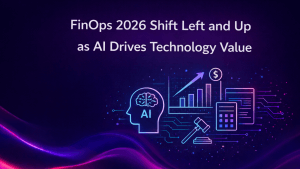Computer vision is an extraordinarily overcrowded tech segment. That’s the inescapable conclusion when you browse Angel List and discover that there are 568 startups and 1,993 investors in this market.
Computer vision is the convergence of many hot tech segments, including artificial intelligence, the “internet of things,” stream computing, big data analytics, cloud services and mobile devices. Though privacy advocates may shudder at the thought, many innovative startups are training computer vision solutions to perform 24-by-7 surveillance with astonishing accuracy, as some people in China have found out recently.
One case in point is Umbo Computer Vision Inc., a Taipei-based startup with offices in San Francisco and London. On Wednesday, it announced a cloud-driven, AI-infused computer vision solution that enables organizations to secure public areas and provide exact occupancy numbers in defined spaces.
The Umbo Light solution is a package of smart cameras and Amazon Web Services-based cloud services that leverages deep learning analytics to analyze video streams automatically and adaptively. Once the service has identified suspicious activities, it can trigger fast, accurate and contextualized alerts to consumers, law-enforcement agencies and other interested parties to take action.
Depending on your point of view, Umbo Light’s smarts (pictured) are either thrilling or unnerving. The service’s embedded AI progressively learns what’s normal versus anomalous in the specific patterns it detects in video streams. Over time, this real-time operational training enables the service to become exquisitely sensitive to the objects, individuals and behaviors normally associated with the various environments into which the smart cameras have been deployed.
One key feature is “loitering memory,” which remembers individuals as they walk in and out of a camera’s view and flags suspicious individuals who may be spending too much time in open, semipublic areas such as ATM kiosks and parking lots. Another intelligent features is “occupancy,” under which the service can accurately count the number of people in a specific room or area with only one smart camera that need not be installed in a top-down or any other specific position.
Though many computer vision vendors cluster around Silicon Valley and other major cities in the U.S. and Canada, a significant numbers are, like Umbo, based in the Far East. Several China-based vendors — including SenseTime Group Ltd., Megvii Technology Inc., CloudWalk Technology Co. Ltd. and Yitu Technology — are world leaders in face recognition, with a strong presence in the market and many clients in the public sector. Israel, the U.K., Ireland and other countries in Europe have strong computer vision startups in the surveillance arena, many with a focus on drone-based and other deployment platforms for military customers.
In addition to the applied AI and IoT research coming from these computer vision startups, much of the research into enabling hardware architectures is coming from chip manufacturers such as Qualcomm Inc., and advances in algorithms, tools, and cloud services are coming from powerhouse tech companies such as AWS and Google Inc. Many innovations in computer vision emanate from research and development shops engaged in the race to build smarts for industrial robots, perfect autonomous vehicles, spice up online entertainment and enhance the visual smarts of mobile apps.
Check out this excellent recent YouTube presentation on trends in AI-driven computer vision:


